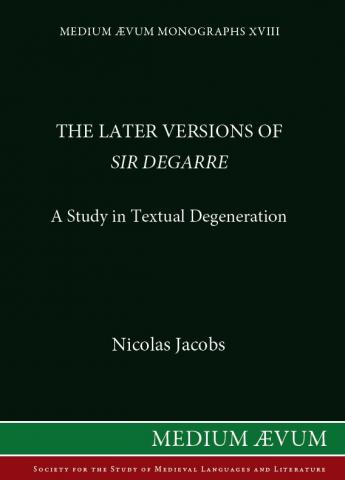This monograph offers a rigorous philological and literary analysis of the later versions of the Middle English romance Sir Degarré, tracing the trajectory of its textual tradition into the fifteenth and early sixteenth centuries. Jacobs explores how successive redactions of the romance, particularly those found in later manuscripts and early printed editions, exhibit signs of what he terms “textual degeneration”—a process in which narrative coherence, poetic artistry, and stylistic elegance are progressively eroded. Through close comparison of variants, Jacobs identifies linguistic corruption, structural simplification, and the loss of key literary features, positioning these changes within broader shifts in the audience, transmission practices, and cultural expectations of the late medieval and early Tudor periods. Rather than treating such degeneration as mere scribal carelessness, he contextualises it as part of the popularisation and commercialisation of romance texts, where fidelity to literary quality was often secondary to marketable accessibility. The study also offers important methodological reflections on textual criticism and editorial practice, engaging with the challenges of representing degenerate or unstable traditions within modern editions. By focusing on Sir Degarré, a romance that straddles aristocratic and popular literary cultures, Jacobs contributes to a more nuanced understanding of how Middle English narrative adapted—or declined—in response to evolving readerships. Scholars of Middle English romance, manuscript culture, and the dynamics of vernacular textual transmission will find in this volume a meticulous case study, exemplifying the interplay between literary history and material philology, with broader implications for the field.
